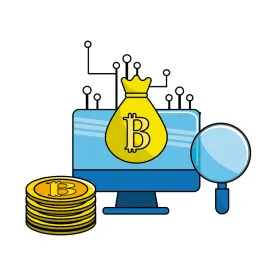Summary
The Director of the SEC’s Division of Corporation Finance William Hinman gave a speech in which he discussed whether a digital asset originally offered as a security can become something other than a security over time. The speech provided some of the most important considerations to date for analysis of blockchain token transactions under US securities law.
In Depth
In a speech before the Yahoo Finance All Markets Summit: Crypto, William Hinman (Director Hinman), the US Securities and Exchange Commission’s (the SEC’s) Director of the Division of Corporation Finance discusses whether a digital asset offered as a security can, over time, become something other than a security. Although preceded by the standard disclaimer that the speech expresses Director Hinman’s personal views and not necessarily those of the SEC, its Commissioners or other members of its staff, the carefully worded speech nonetheless provides some of the most important considerations to date for analysis of blockchain token transactions pursuant to US securities law. Director Hinman explains that he is excited about “the potential for distributed ledger technology to share information, transfer value, and record transactions in a decentralized environment.” The key takeaways of Director Hinman’s speech are:
1. A token “all by itself is not a security,” rather, the transactions pursuant to which it is distributed may be securities transactions. The securities law analysis of the transactions may change over time.
2. Currently the Bitcoin and Ether networks are sufficiently decentralizedthat the disclosure regime of the federal securities laws seem to add little value. Over time, other networks may be sufficiently decentralized such that the tokens that function on them may not need to be regulated as securities.
3. The form of a transaction is less important than the economic reality of the transaction. Where tokens are sold to raise money to fund an enterprise, and where the token purchasers rely on the efforts of someone other than themselves to see a profit, sale of the tokens may be a securities transaction.
4. A non-exclusive list of factors to consider in determining whether third-party activity and the features of a token suggest that the transfer of tokens is a securities transaction. He also acknowledged that the application of securities laws to initial sales of a blockchain token will impact secondary market transactions in the token.
5. The SEC welcomes dialogue with token promoters and their counsel and is prepared to provide more formal interpretations and no-action guidance.
A Token “All by Itself Is Not a Security.” Importantly, Director Hinman distinguishes between the actual token on the one hand, and the manner in which it is sold and the reasonable expectations of the purchasers on the other. For some time, lawyers have been emphasizing that just as the orange groves in Howey were not securities, depending on the facts and circumstances, a token itself may not be a security, even if the contract under which it is sold is a security. Director Hinman agrees, stating that of the ICOs he is seeing, “strictly speaking, the token – or coin or whatever the digital information packet is called – all by itself is not a security, just as the orange groves in Howey were not.” In a footnote to the written version of the speech, Director Hinman does not opine on the Simple Agreement for Future Tokens (SAFT), however, he states that “I believe a token once offered in a security offering can, depending on the circumstances, later be offered in a non-securities transaction. I expect that some, perhaps many, may not.”
Director Hinman also notes that “[i]f a promoter were to place Bitcoin in a fund or trust and sell interests, it would create a new security. Similarly, investment contracts can be made out of virtually any asset (including virtual assets), provided the investor is reasonably expecting profits from the promoter’s efforts.”
“Decentralized” Networks. Director Hinman believes that the Bitcoin network is sufficiently decentralized, so that requiring disclosure pursuant to the securities laws to the offer and resale of Bitcoin “would seem to add little value.” Although he declines to take a position on the original fundraising for Ether, he states that based on his understanding of “the present state of Ether, the Ethereum network and its decentralized structure, current offers and sales of Ether are not securities transactions.”
Director Hinman discusses a key policy underlying the securities laws, noting that “[t]he impetus of the Securities Act [of 1933] is to remove the information asymmetry between promoters and investors.” As Director Hinman explains, the Securities Act of 1933 requires that those who issue securities to the public provide information to investors so they can make an informed investment decision, and imposes liability on the promoters for material misstatements in those offering materials. He finds that the disclosures required under the securities laws “nicely complement the Howey investment contract element about the efforts of others,” and that where investors are relying on the efforts of others to run the enterprise, they need adequate information to make an informed decision about their investment. “These are important safeguards, and they are appropriate for most ICOs.” Where, however a network is “sufficiently decentralized – where purchasers would no longer reasonably expect a person or group to carry out essential managerial or entrepreneurial efforts – the assets may not represent an investment contract.” Therefore, “when the efforts of the third party are no longer a key factor for determining the enterprise’s success, material information asymmetries recede. As a network becomes truly decentralized, the ability to identify an issuer or promoter to make the requisite disclosures becomes difficult, and less meaningful.”
Although he includes factors to consider in assessing whether a digital asset is offered as a security, a key challenge for the SEC will be the development of factors that are determinative of decentralization.
Economic Reality. Director Hinman discusses SEC v. W.J. Howey Co. (Howey), the case in which the Supreme Court interpreted whether the sale of a contract for orange groves was a transaction to which securities laws apply. As articulated in Howey, “‘[f]orm is disregarded for substance and the emphasis is placed upon economic reality.’” Director Hinman explains that in Howey, the interests in the orange groves were sold to hotel guests rather than farmers, and similarly “tokens and coins typically are sold to a wide audience rather than to persons who are likely to use them on the network.” Where tokens are sold to raise money to fund an enterprise, and where the token purchasers rely on the efforts of someone other than themselves to see a profit, Director Hinman finds that the sale of the tokens may be a securities transaction.
Security Factors; Secondary Market. Director Hinman provides two lists of non-exclusive factors to consider in assessing whether a digital asset is offered as an investment contract and thus a security. A primary consideration is whether a third party “drives the expectation of a return.” (Although not explicitly stated in the speech, a third party likely means a third party in relation to the network.) Director Hinman emphasizes that the lists are illustrative, and the question depends on the particular facts and circumstances and the economic reality of the transaction. The lists are meant to prompt thinking by promoters and their counsel, and start a dialogue with the SEC.
Director Hinman briefly acknowledges that the application of securities laws to blockchain token distributions could have an impact on how the token or sale is treated, not just in the initial sale, but in secondary transactions. He explains that the SEC’s Divisions of Trading and Markets and Investment Management are focused on such issues as broker-dealer, exchange and fund registration, as well as matters of market manipulation, custody and valuation. “We understand that market participants are working to make their services compliant with the existing regulatory framework, and we are happy to continue our engagement in this process.”
An Invitation for Dialogue. Director Hinman welcomes discussions with promoters and their counsel to work through the securities law issues of particular tokens, sales, broker-dealer, exchange and fund registration, market manipulation, custody and valuation. Director Hinman encourages anyone who has questions about a particular structure to consult with knowledgeable securities counsel or the SEC.
Director Hinman’s speech certainly will prompt thinking and discussions by blockchain token projects and their counsel. We continue to consider the implications of Director Hinman’s speech and look forward to working together with market participants on these questions.





 />i
/>i

